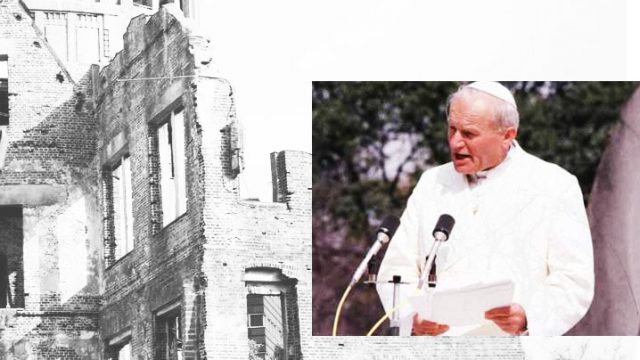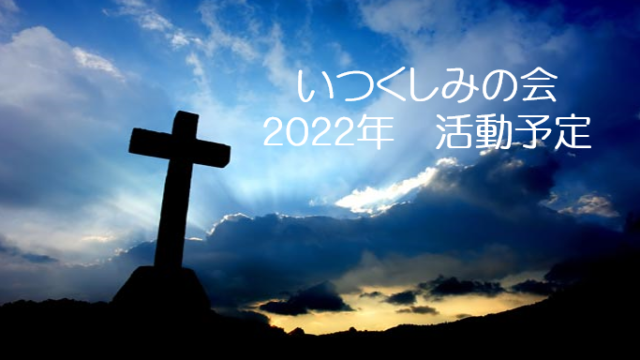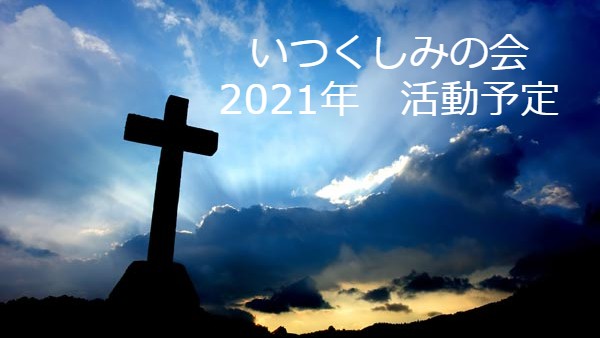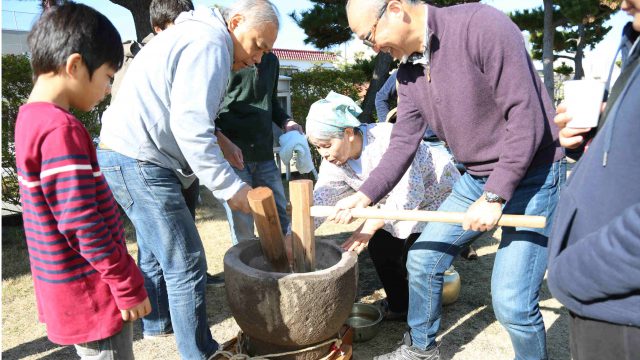戦後70年司教団メッセージ 2015
平和を実現する人は幸い~今こそ武力によらない平和を
キリストにおける兄弟姉妹、ならびに平和を願うすべての方々へ
日本カトリック司教団はこれまで、1995年に『平和への決意 戦後五十年にあたって』、また2005年には『「非暴力による平和への道」~今こそ預言者としての役割を』というメッセージを発表してきました。戦後70年を迎える今年、ここに改めて平和への決意を表明することにいたします。
1. 教会は人間のいのちと尊厳に関する問題に沈黙できない
カトリック教会にとって今年は、1962年から1965年にかけて行われた第二バチカン公会議の閉幕から50年という記念すべき年にもあたります。二十世紀の前半、ヨーロッパを中心としたキリスト教会は、二つの世界大戦やナチスドイツによるユダヤ人の大量虐殺などを経験しました。これらの悲劇の反省から教会は、いわゆる宗教的な領域に閉じこもるのではなく、人類の問題を自分の問題として受け止めなければならないと自覚するようになりました。第二バチカン公会議の終わりに発表された『現代世界憲章』の冒頭には、その自覚が次のような文章ではっきりと示されています。
「現代の人々の喜びと希望、苦悩と不安、とくに貧しい人々とすべての苦しんでいる人々のものは、キリストの弟子たちの喜びと希望、苦悩と不安でもある。真に人間的なことがらで、キリストの弟子たちの心に響かないものは何もない」 [1] 。
第二バチカン公会議後のカトリック教会は、フランシスコ現教皇にいたるまで、人間のいのちと尊厳の問題、とくに抑圧された人や排除された人の問題に真剣に、積極的に向き合おうとしています 。 [2]
2. 戦争放棄への決意
1945年までの日本の朝鮮半島などに対する植民地支配、中国や他のアジアの国々に対する侵略行為はアジアの人々に大きな苦しみと犠牲をもたらしました。また、日本人にとっても第二次世界大戦は悲惨な体験でした。1945年3月10日の東京大空襲をはじめ、日本の多くの都市への大規模な空爆がありました。沖縄における地上戦によって日本や外国の兵士だけでなく、多数の民間人が犠牲になりました。そして8月6日広島への原爆投下と8月9日長崎への原爆投下。これらの体験から平和への渇望が生まれ、主権在民、戦争放棄、基本的人権の尊重を基調とする日本国憲法が公布されました(1946年)。日本はこの平和憲法をもとに戦後70年、アジアの諸国との信頼・友好関係を築き、発展させたいと願って歩んで来たのです。
一方、世界のカトリック教会では、東西冷戦、ベルリンの壁崩壊などの時代を背景に、軍拡競争や武力による紛争解決に対して反対する姿勢を次第に鮮明にしてきました。
ヨハネ二十三世教皇は回勅『地上の平和』において「原子力の時代において、戦争が侵害された権利回復の手段になるとはまったく考えられません」 [3] と述べています。第二バチカン公会議の『現代世界憲章』は、軍拡競争に反対し、軍事力に頼らない平和を強く求めました [4] 。1981年、ヨハネ・パウロ二世教皇が広島で語った平和アピールのことば、「戦争は人間のしわざです。戦争は人間の生命の破壊です。戦争は死です」にも、はっきりとした戦争に対する拒否が示されています。
以上の歴史的経緯を踏まえるならば、わたしたち日本司教団が今、日本国憲法の不戦の理念 [5] を支持し、尊重するのは当然のことです。戦争放棄は、キリスト者にとってキリストの福音そのものからの要請であり、宗教者としていのちを尊重する立場からの切なる願いであり、人類全体にとっての手放すことのできない理想なのです。
3. 日本の教会の平和に対する使命
日本カトリック司教団は、特別に平和のために働く使命を自覚しています。それは何らかの政治的イデオロギーに基づく姿勢ではありません。わたしたちは政治の問題としてではなく、人間の問題として、平和を訴え続けます。この使命の自覚は、もちろん日本が広島、長崎で核兵器の惨禍を経験したことにもよりますが、それだけではなく戦前・戦中に日本の教会がとった姿勢に対する深い反省から生まれてきたものでもあります。
1986年9月26日、東京で開催されたアジア司教協議会連盟総会のミサにおいて、白柳誠一東京大司教(当時)は次のように述べました。
「わたしたち日本の司教は、日本人としても、日本の教会の一員としても、日本が第二次世界大戦中にもたらした悲劇について、神とアジア・太平洋地域の兄弟たちにゆるしを願うものであります。わたしたちは、この戦争に関わったものとして、アジア・太平洋地域の2千万を越える人々の死に責任をもっています。さらに、この地域の人々の生活や文化などの上に今も痛々しい傷を残していることについて深く反省します」。
これは一個人としてのことばではなく、司教協議会会長として司教団の総意を代表して述べたことばでした [6] 。さらに日本司教団は戦後50年と60年にあたっての平和メッセージ(上掲)の中で、戦前・戦中の教会の戦争責任を反省し、その上に立って平和への決意を表明しています。
4. 歴史認識と集団的自衛権行使容認などの問題
戦後70年をへて、過去の戦争の記憶が遠いものとなるにつれ、日本が行った植民地支配や侵略戦争の中での人道に反する罪の歴史を書き換え、否定しようとする動きが顕著になってきています。そして、それは特定秘密保護法や集団的自衛権の行使容認によって事実上、憲法9条を変え、海外で武力行使できるようにする今の政治の流れと連動しています。他方、日本だけでなく、日本の周辺各国の政府の中にもナショナリズム強調の動きがあることにわたしたちは懸念を覚えずにはいられません。周囲の国と国との間に緊張がある中で、自衛権を理由に各国が軍備を増強させるよりも、関係改善のための粘り強い対話と交渉をすることこそが、この地域の安定のために必要なのです。
また日本の中でとくに深刻な問題は、沖縄が今なお本土とは比較にならないほど多くの基地を押しつけられているばかりか、そこに沖縄県民の民意をまったく無視して新基地建設が進められているということです。ここに表れている軍備優先・人間無視の姿勢は平和を築こうとする努力とは決して相容れません。
5. 今の世界情勢の深刻な危機の中で
今、世界を見渡せば、各地で軍事的な対立やテロの悲劇が繰り返されています。国家間、民族間の対立、宗教の名を借りた紛争が激しくなり、対話を不可能と感じさせるような状況が世界各地に広がっています。その中で数多くの人々、とくに女性や子ども、少数民族や宗教的マイノリティーの人々のいのちが脅かされ、実際にいのちが奪われています。世界各地で続くこのような惨状について、フランシスコ教皇は「第三次大戦」という人もいるだろうとの懸念を表明し、過ちを繰り返さないようにといさめました [7] 。この世界は、結局のところ、力がものをいう世界なのかと疑わざるをえないような危機的状況に直面しています。人間性を尊重する理性はどこへ行ってしまったのでしょうか。暴力を押さえ込むために新たな暴力を用いるようなやり方を繰り返していては、人類全体が破滅に向かうだけです。
世界はグローバル化された企業や金融システムの力に支配されています。その中で格差は広がり続け、貧しい人々が排除されています。人間の経済活動は気候変動や生物多様性の喪失を引き起こすまでになっています。平和の実現のためには、このような状況を変えること、世界の貧困や環境の問題、格差と排除の問題に取り組むことが不可欠です。わたしたち一人ひとりにも地球規模の問題に対する無関心を乗り越え、自分の生活を変えることが求められています。わたしたちにできることは、すべての問題を一気に解決しようとせずに、忍耐をもって平和と相互理解のための地道な努力を積み重ねることです。
おわりに
もう一度、ヨハネ・パウロ二世教皇が広島で語った『平和アピール』 [8] のことばを思い起こします。
「目標は、つねに平和でなければなりません。すべてをさしおいて、平和が追求され、平和が保持されねばなりません。過去の過ち、暴力と破壊とに満ちた過去の過ちを、繰り返してはなりません。険しく困難ではありますが、平和への道を歩もうではありませんか。その道こそが、人間の尊厳を尊厳たらしめるものであり、人間の運命をまっとうさせるものであります。平和への道のみが、平等、正義、隣人愛を遠くの夢ではなく、現実のものとする道なのです」。
わたしたちは「平和を実現する人は幸い」(マタイ5・9)というイエス・キリストのことばにも励まされます。戦後70年、第二バチカン公会議閉幕50年にあたり、平和を求め、平和のために働く決意を新たにしましょう。わたしたち日本のカトリック教会は小さな存在ですが、諸教派のキリスト者とともに、諸宗教の信仰者とともに、さらに全世界の平和を願うすべての人とともに、平和を実現するために働き続けることを改めて決意します。
2015年2月25日 日本カトリック司教団 カトリック中央協議会ホームページより
1. 第二バチカン公会議 『現代世界憲章』 (1965年) n.1
2. 教皇フランシスコ使徒的勧告 『福音の喜び』 (2013年) n.182 「司牧者には、科学の貢献を受け入れつつ、人間の生活に作用するすべてのことがらについて意見を表明する権利があります。もはや、宗教は私的な領域に限定されるべきもので、天国に行くために霊魂を整えるためだけにあるなどと主張することはできません」
3. 教皇ヨハネ二十三世回勅 『地上の平和』 (1963年) n.67
4. 『現代世界憲章』n.81
5. 日本国憲法前文「日本国民は、恒久の平和を念願し、人間相互の関係を支配する崇高な理想を深く自覚するのであつて、平和を愛する諸国民の公正と信義に信頼して、われらの安全と生存を保持しようと決意した。」、同9条「日本国民は、正義と秩序を基調とする国際平和を誠実に希求し、国権の発動たる戦争と、武力による威嚇又は武力の行使は、国際紛争を解決する手段としては、永久にこれを放棄する。 前項の目的を達するため、陸海空軍その他の戦力は、これを保持しない。国の交戦権は、これを認めない。」
6. 1986年6月 日本カトリック司教協議会定例司教総会
7. 教皇フランシスコ 「第一次世界大戦開始100年にあたっての戦没者追悼式典でのことば」 イタリア、フォリアーノ・レディプーリアの慰霊施設にて (2014年9月13日)
8. 教皇ヨハネ・パウロ二世 『広島平和アピール』 (1981年2月25日) n.5
70 Years after the War
Blessed are the peacemakers – Now especially, peace must not depend upon weapons
To our Brothers and Sisters in Christ and to All Who Wish for Peace
The Catholic Bishops’ Conference of Japan issued messages marking the end of the Second World War in 1995 (Resolution for Peace — On the 50th. Anniversary of the End of the War) and 2005 (Peace Message After 60 Years From the End of War World II — The Road To Peace Based On Nonviolence — Now Is The Time To Be Prophetic). In this year in which we mark the 70th anniversary of the end of the war, we wish to once again declare our commitment to peace.
1. The Church Cannot Remain Silent in the Face of Threats to Human Life and Dignity
For the Catholic Church, this is a noteworthy year because it marks the 50th anniversary of the closing of the Second Vatican Council (1962-1965).
In the first half of the Twentieth Century the Christian Church centered in Europe experienced two world wars and genocide against the Jews by Nazi Germany. Reflecting on these tragedies, the Church cannot close itself up with merely “religious” concerns. We have realized that the problems of humanity are our problems. The Pastoral Constitution on the Church in the Modern World, Gaudium et Spes, issued at the end of the Second Vatican Council, is a clear example of this insight, opening with the following words.
“The joys and the hopes, the griefs and the anxieties of the men of this age, especially those who are poor or in any way afflicted, these are the joys and hopes, the griefs and anxieties of the followers of Christ. Indeed, nothing genuinely human fails to raise an echo in their hearts.”
From the end of the Second Vatican Council up to the papacy of Pope Francis today, the Church has actively faced the issues of human life and dignity, especially of those who are excluded or oppressed.
2. The Decision to Renounce War
Japanese colonial rule on the Korean Peninsula until 1945 as well as acts of aggression against China and other Asian countries caused great suffering and sacrifice among people. The Second World War was a horrible experience for the Japanese people as well. Beginning with the Tokyo air raid of March 10, 1945, large-scale air raids struck many cities in Japan. In addition to the many Japanese and foreign troops who became casualties during land combat on Okinawa, many civilians suffered as well. Then finally there were the atomic bombings of Hiroshima on August 6 and Nagasaki on August 9, 1945. These experiences gave birth to a desire for peace that was codified in the Constitution of Japan promulgated in 1946 based on the sovereignty of the people, the renunciation of war and respect for basic human rights. Following this peace constitution, Japan has striven to build relationships of trust and friendship with the nations of Asia.
Against the background of the Cold War and the subsequent fall of the Berlin Wall, the Catholic Church throughout the world has made increasingly clear its opposition to the arms race and the use of weapons to resolve disputes.
In his encyclical Pacem in Terris, Pope John XXIII said, “in this age which boasts of its atomic power, it no longer makes sense to maintain that war is a fit instrument with which to repair the violation of justice” Vatican II in Gaudiam et Spes opposed the arms race, and urged peace that does not rely upon military force. In his Appeal for Peace in Hiroshima in 1981, Pope John Paul II demonstrated this clear renunciation of war when he said, “War is the work of man. War is destruction of human life. War is death.”
Given this historical background, it is a matter of course that we Japanese bishops respect the ideals of Japan’s no-war Constitution. For Christians, the renunciation of war is demanded by the Gospel of Christ. It is a respect for life that cannot be abandoned by religious people and an ideal that is held firmly by the whole human race.
3. The Japanese Church’s peace vocation
The Catholic Bishops’ Conference of Japan knows that it has a special vocation to work for peace. It is not based upon any political ideology. We continue to appeal for peace not as a political issue, but as a human one. Our awareness of this vocation is, of course, influenced by the horrors inflicted by nuclear weapons on Hiroshima and Nagasaki, but it is also born of deep remorse when we reflect upon the attitude of the Church in Japan before and during the war.
During a Mass celebrated on September 26, 1986, at the plenary meeting of the Federation of Asian Bishops’ Conferences (FABC) held in Tokyo, Archbishop Shirayanagi of Tokyo made the following declaration. “We Catholic bishops of Japan, as Japanese, and as members of the Catholic Church in Japan, sincerely ask forgiveness from God and from our brothers and sisters of Asia and the Pacific Region for the tragedy brought by the Japanese during the Second World War. As parties involved in the war, we share in the responsibility for the more than 20 million victims in Asia and the Pacific. Furthermore, we deeply regret having damaged the lives and cultures of the people of these regions. The trauma of this is still not healed.”
These words were not those of a single bishop. He spoke as president of the bishops’ conference, conveying the opinion of the whole conference. As mentioned above, in their messages on the 50th and 60th anniversaries of the end of the war, the bishops continued to reflect upon the issue of the Church’s responsibility before and during the war and from that standpoint have expressed their determination in favor of peace.
4. Problems such as recognition of history and the exercise of collective self-defense
Seventy years after the war, memory of it is fading along with memories of Japanese colonial rule and aggression with its accompanying crimes against humanity. Now, there are calls to rewrite the history of that time, denying what really happened. The present government is attempting to enact laws to protect state secrets, allow for the right of collective self-defense and change Article 9 of the Constitution to allow the use of military force overseas.
At the same time, we cannot overlook growing nationalism not only in Japan, but among the governments of other countries in this part of the world. As tensions rise between nations, a strong commitment to improved relations through dialogue and negotiation rather than increased militarization becomes more important for regional stability.
Domestically, the situation in Okinawa presents a particularly serious problem. Compared to the rest of the country, the number of military bases there is especially high. New base construction is underway, contrary to the wishes of the citizens of the prefecture. This demonstrates an attitude that puts priority on armaments while ignoring people and efforts to build peace.
5. Amidst the serious crises facing the world today
Viewing the world today, the tragedies of military conflict and terrorism occur over and over again in many places. In addition to conflicts between nations and ethnic groups, now violence in the name of religion makes it increasingly seem as if throughout the world dialogue has become impossible. In that situation, women and children as well as ethnic and religious minorities are especially threatened and many lose their lives.
In the face of such worldwide destructiveness, Pope Francis has expressed concern that some people seem to speak of a “Third World War” rather than making sure we do not repeat the mistakes of the past. The world faces the sorts of crises that cannot but cause people to wonder if force is the answer. What has become of respect for humanity? However, repeatedly answering violence with violence will only lead to the destruction of humanity.
The world is dominated by the globalization of companies and the financial system. Disparities continue to widen and the poor are excluded. Human economic activity is causing climate change and the destruction of biodiversity. If we wish to realize peace, this situation must change. We cannot ignore the problems of poverty and the environment that produce disparity and exclusion. We are each called upon to overcome our indifference to the world’s problems and change our lives. We cannot solve all the world’s problems at once, but we can patiently continue to work toward peace and mutual understanding.
In Conclusion
We recall the words of Pope John Paul II in his Appeal for Peace in Hiroshima: “Peace must always be the aim: peace pursued and protected in all circumstances. Let us not repeat the past, a past of violence and destruction. Let us embark upon the steep and difficult path of peace, the only path that befits human dignity, the only path that leads to the true fulfillment of the human destiny, the only path to a future in which equity, justice and solidarity are realities and not just distant dreams.”
We are encouraged by the words of Jesus Christ, “Blessed are the peacemakers” (Mt. 5:9). Seventy years after the end of the war and 50 years after the end of the Second Vatican Council, let us renew our determination to seek peace and to work for peace. We Catholics in Japan are small in number, but in union with other Christians and along with believers of other religions and those throughout the world who wish for peace, we renew our commitment to work to make peace a reality.
February 25, 2015 Catholic Bishops’ Conference of Japan








